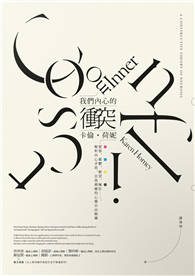| FindBook |
有 1 項符合
Much Ado About Nothing的圖書 |
 |
Much Ado About Nothing 作者:William Shakespeare 出版社:Castrovilli Giuseppe 出版日期:2014-01-22 語言:英文 |
| 圖書館借閱 |
| 國家圖書館 | 全國圖書書目資訊網 | 國立公共資訊圖書館 | 電子書服務平台 | MetaCat 跨館整合查詢 |
| 臺北市立圖書館 | 新北市立圖書館 | 基隆市公共圖書館 | 桃園市立圖書館 | 新竹縣公共圖書館 |
| 苗栗縣立圖書館 | 臺中市立圖書館 | 彰化縣公共圖書館 | 南投縣文化局 | 雲林縣公共圖書館 |
| 嘉義縣圖書館 | 臺南市立圖書館 | 高雄市立圖書館 | 屏東縣公共圖書館 | 宜蘭縣公共圖書館 |
| 花蓮縣文化局 | 臺東縣文化處 |
|
|
Much Ado About Nothing is a comedic play by William Shakespeare thought to have been written in 1598 and 1599, as Shakespeare was approaching the middle of his career. The play was included in the First Folio, published in 1623. Much Ado About Nothing is generally considered one of Shakespeare's best comedies, because it combines elements of robust hilarity with more serious meditations on honor, shame, and court politics. Like As You Like It and Twelfth Night, Much Ado About Nothing, though interspersed with darker concerns, is a joyful comedy that ends with multiple marriages and no deaths. The character of Benedick has been played by such actors as Henry Irving, Kenneth Branagh, and David Tennant.
Much Ado About Nothing chronicles two pairs of lovers: Benedick and Beatrice (the main couple), and Claudio and Hero (the secondary couple). At the start of the play, Benedick and Beatrice are engaged in a very "merry war"; they are both very witty and proclaim their disdain of love. In contrast, Claudio and Hero are sweet young people who are rendered practically speechless by their love for one another. Although the young lovers Hero and Claudio provide much of the impetus for the plot, the courtship between the wittier, wiser lovers Benedick and Beatrice is what makes Much Ado About Nothing so memorable. Benedick and Beatrice argue with delightful wit, and Shakespeare develops their journey from antagonism to sincere love and affection with a rich sense of humor and compassion.
By means of "nothing" (which sounds the same as "noting," and which is gossip, rumour, and overhearing), Benedick and Beatrice are tricked into confessing their love for each other, and Claudio is tricked into rejecting Hero at the altar on the erroneous belief that she has been unfaithful. At the end, Benedick and Beatrice join forces to set things right, and the others join in a dance celebrating the marriages of the two couples.
At Messina, a messenger brings news that Don Pedro, a Spanish prince from Aragon, and his officers, Benedick and Claudio, have returned from a successful battle. Leonato, the governor of Messina, welcomes the messenger and announces that Don Pedro and his men will stay for a month. Beatrice, Leonato's niece, asks the messenger about Benedick, and makes sarcastic remarks about his ineptitude as a soldier. Leonato explains that "There is a kind of merry war betwixt Signior Benedick and her."
Benedick and Beatrice, longtime adversaries, carry on their arguments. Claudio’s feelings for Hero, Leonato's only daughter, are rekindled upon seeing her, and Claudio soon announces to Benedick his intention to court her. Benedick, who openly despises love and marriage, tries to dissuade his friend but Don Pedro encourages the marriage. Benedick swears that he will never get married. Don Pedro laughs at him and tells him that when he has found the right person he shall get married.
A masquerade ball is planned in celebration, giving a disguised Don Pedro the opportunity to woo Hero on Claudio’s behalf. Don John, "The Bastard" (Don Pedro's illegitimate brother), is a malcontent who uses this situation to get revenge on his brother Don Pedro by telling young Claudio that Don Pedro is wooing Hero for himself. A furious Claudio confronts Don Pedro, but the misunderstanding is quickly resolved and Claudio wins Hero's hand in marriage.
Meanwhile, Benedick disguises himself and dances with Beatrice. Beatrice, recognizing him anyway, proceeds to refer to this "mystery man" that Benedick is "The Prince's jester, a very dull fool." Benedick, enraged by her words, swears he will have revenge. Don Pedro and his men, bored at the prospect of waiting a week for the wedding, harbour a plan to matchmake between Benedick and Beatrice. The men arrange for Benedick to overhear a conversation in which they declare that Beatrice is madly in love with him but afraid to tell him; the women use the same ploy on Beatrice. The friends also make sure that Benedick and Beatrice hear them say that their pride is the main impediment to their courtship. Benedick, walking through the garden, overhears his friends professing Beatrice's supposed love for him. Meanwhile, Hero and her maid Ursula notice Beatrice in the house, and discuss with one another Benedick's undying love for her. The trick has the desired effect: both Benedick and Beatrice are delighted to think they are the object of unrequited love, and both accordingly resolve to mend their faults and reconcile.
Meanwhile Don John plots mischief, hoping to prevent the wedding, embarrass his brother the Prince, and wreak misery on Don Pedro's friends Leonato and Claudio. He informs Don Pedro and Claudio that Hero is unfaithful, and arranges for them to see Borachio enter her bedchamber where he has an amorous liaison (actually with Margaret, Hero's chambermaid). Claudio and Don Pedro are taken in, and Claudio vows to publicly humiliate Hero.
At the wedding the next day, Claudio denounces Hero before the stunned guests and storms off with Don Pedro. Hero faints. Her humiliated father Leonato expresses the wish that she would die. The presiding Friar intervenes, believing Hero to be innocent. He suggests the family fake Hero's death in order to extract the truth and Claudio’s remorse. Prompted by the day's harrowing events, Benedick and Beatrice confess their love for each other. Beatrice then asks Benedick to slay Claudio as proof of his devotion, since he has slandered her kinswoman. Benedick is horrified and at first denies her request. Leonato and his brother Antonio blame Claudio for Hero’s apparent death and challenge him to a duel. Benedick then does the same.
Luckily, on the night of Don John's treachery, the local Watch apprehended Borachio and his ally Conrade. Despite the Watch's comic ineptness (headed by constable Dogberry, a master of malapropisms), they have overheard the duo discussing their evil plans. The Watch arrest the villains and eventually obtain a confession, informing Leonato of Hero's innocence. Though Don John has fled the city, a force is sent to capture him. Claudio, stricken with remorse at Hero's supposed death, agrees to her father's demand that he marry Antonio's daughter, "almost the copy of my child that's dead" and carry on the family name.
At the wedding, the bride is revealed to be Hero, still living. Claudio is overjoyed. Beatrice and Benedick, prompted by their friends’ interference, finally and publicly confess their love for each other. As the play draws to a close, a messenger arrives with news of Don John’s capture – but Benedick proposes to postpone his punishment to another day so that the couples can enjoy their new-found happiness.
|











